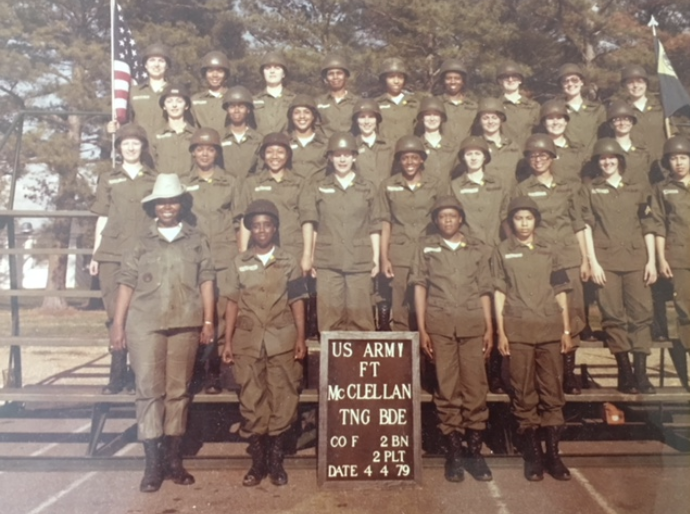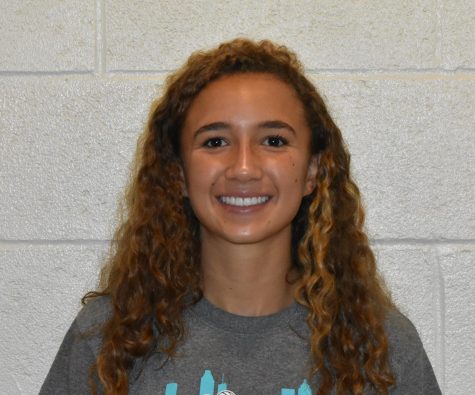Fletcher explains military to teaching
October 12, 2018
AP Lang teacher Dr. Rosemary Fletcher has been in Atlanta since 1980 after leaving the Army and moving from a military base in North Carolina.
“She’s always dress up super nice in her pencil skirt, a fancy top, heels and makeup,” said junior Kasey Bandrowski. “When she told us she was in the military I was so surprised.”
Dr. Fletcher graduated from high school in 1973 from West Rowan High School in Cleveland, North Carolina.
“My immediate plans were to take a gap year, which I did, and work full time. But as it turned out, I didn’t start college until several years later as an art major. Of course, that didn’t pan out either, so I joined the Army a year after that,” said Dr.Fletcher.
She moved to a city where she didn’t know anyone, but one of her coworkers was in the Army Reserves, a volunteer force that provides a reserve of trained and disciplined military personnel for use in an emergency.
“He told me that I’d meet plenty of people in the service and I believed him,” said Dr.Fletcher, “He failed to inform/remind me that I would have to participate in basic training at Fort McClellan in Alabama. I literally thought I was going to die every single day. But after basic training, things were a lot better.”
Her family was supportive throughout her choice to join the army, hoping she would one day find out what she really loved to do.
“I was proud to know she took chances on life and I knew she would eventually find her niche. She would have made a great Military General,” said Jackie Fletcher, her sister.
She described being in the Army Reserves as a “breeze.” The Army Reserves requires you to meet one full weekend each month and two weeks in the summer.
“I was part of a special group of enlistees where we performed the same job for the military that we performed in civilian life: thus, I was a personnel records specialist. I was part of a Mobile Army Surgical Hospital. unit that was made up of all medical personnel (doctors, nurses, dentists, etc.), so it was a very interesting job,” said Dr.Fletcher.
A moment that stood out to her in her military experience was the day she had to “qualify” for weapons. To qualify, one must lay on one’s stomach on the ground and prop the weapon against one’s shoulder with elbows on the ground.
“I laid in the mud and continuously wiped water from my glasses in order to get even a glimpse of the target, some 70-75 meters away. The drill sergeant and her assistant moved about the field assisting us as needed,” said Dr.Fletcher. “But when she got to me, it seemed she purposefully stopped beside me as she brought her boots down in a muddy puddle, splashing the muddy water all over the side of my face.”
After her service in the military she moved on to teaching, anticipating that this would be her new passion, hoping to inspire students.
“I actually never thought I was smart enough to succeed in college, probably a result of some minor bullying experiences in elementary school,” said Dr.Fletcher, “But then I heard my mom telling one of my aunts that she thought I was the only one of her children who would read for pleasure and that she thought I was pretty smart. That did it for me.”
Several years later, she went back to college and got her undergrad in teaching and then three years later, her master’s degree. It would be a little more than 10 years later that she decided to get the doctorate degree.
“Dr.Fletcher is a crazy teacher, her personality is insane in a good way. She’s always joking around and telling the funniest stories,” said Lucie Myatt, former editor in chief of the yearbook who worked alongside Dr Fletcher.







